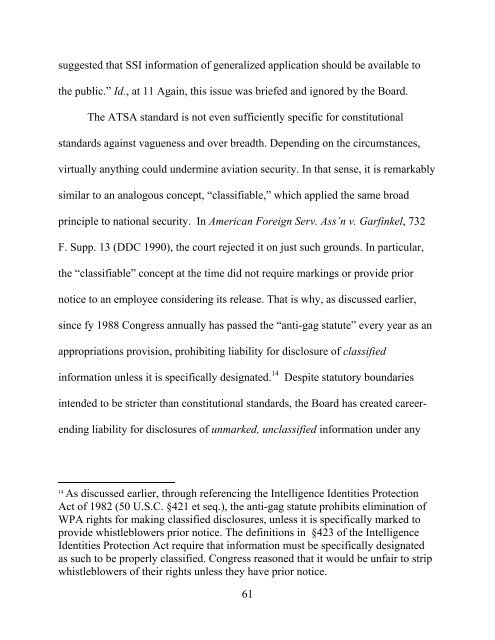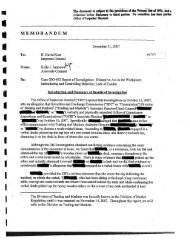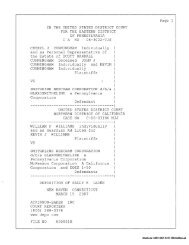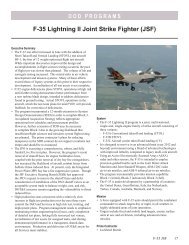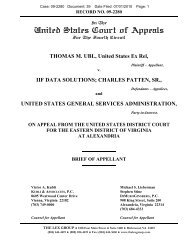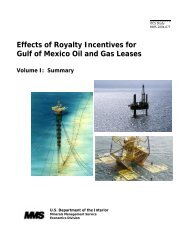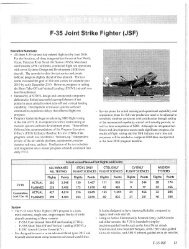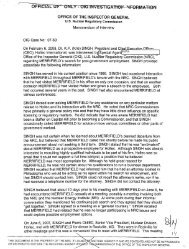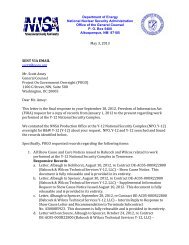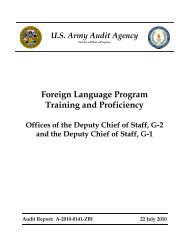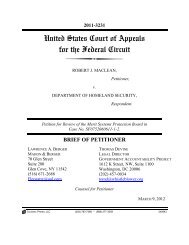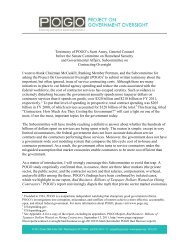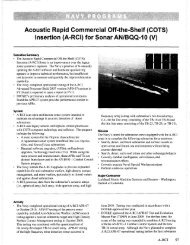United States Court of Appeals for the Federal Circuit
United States Court of Appeals for the Federal Circuit
United States Court of Appeals for the Federal Circuit
You also want an ePaper? Increase the reach of your titles
YUMPU automatically turns print PDFs into web optimized ePapers that Google loves.
suggested that SSI in<strong>for</strong>mation <strong>of</strong> generalized application should be available to<br />
<strong>the</strong> public.” Id., at 11 Again, this issue was briefed and ignored by <strong>the</strong> Board.<br />
The ATSA standard is not even sufficiently specific <strong>for</strong> constitutional<br />
standards against vagueness and over breadth. Depending on <strong>the</strong> circumstances,<br />
virtually anything could undermine aviation security. In that sense, it is remarkably<br />
similar to an analogous concept, “classifiable,” which applied <strong>the</strong> same broad<br />
principle to national security. In American Foreign Serv. Ass’n v. Garfinkel, 732<br />
F. Supp. 13 (DDC 1990), <strong>the</strong> court rejected it on just such grounds. In particular,<br />
<strong>the</strong> “classifiable” concept at <strong>the</strong> time did not require markings or provide prior<br />
notice to an employee considering its release. That is why, as discussed earlier,<br />
since fy 1988 Congress annually has passed <strong>the</strong> “anti-gag statute” every year as an<br />
appropriations provision, prohibiting liability <strong>for</strong> disclosure <strong>of</strong> classified<br />
in<strong>for</strong>mation unless it is specifically designated. 14 Despite statutory boundaries<br />
intended to be stricter than constitutional standards, <strong>the</strong> Board has created career-<br />
ending liability <strong>for</strong> disclosures <strong>of</strong> unmarked, unclassified in<strong>for</strong>mation under any<br />
14 As discussed earlier, through referencing <strong>the</strong> Intelligence Identities Protection<br />
Act <strong>of</strong> 1982 (50 U.S.C. §421 et seq.), <strong>the</strong> anti-gag statute prohibits elimination <strong>of</strong><br />
WPA rights <strong>for</strong> making classified disclosures, unless it is specifically marked to<br />
provide whistleblowers prior notice. The definitions in §423 <strong>of</strong> <strong>the</strong> Intelligence<br />
Identities Protection Act require that in<strong>for</strong>mation must be specifically designated<br />
as such to be properly classified. Congress reasoned that it would be unfair to strip<br />
whistleblowers <strong>of</strong> <strong>the</strong>ir rights unless <strong>the</strong>y have prior notice.<br />
61


